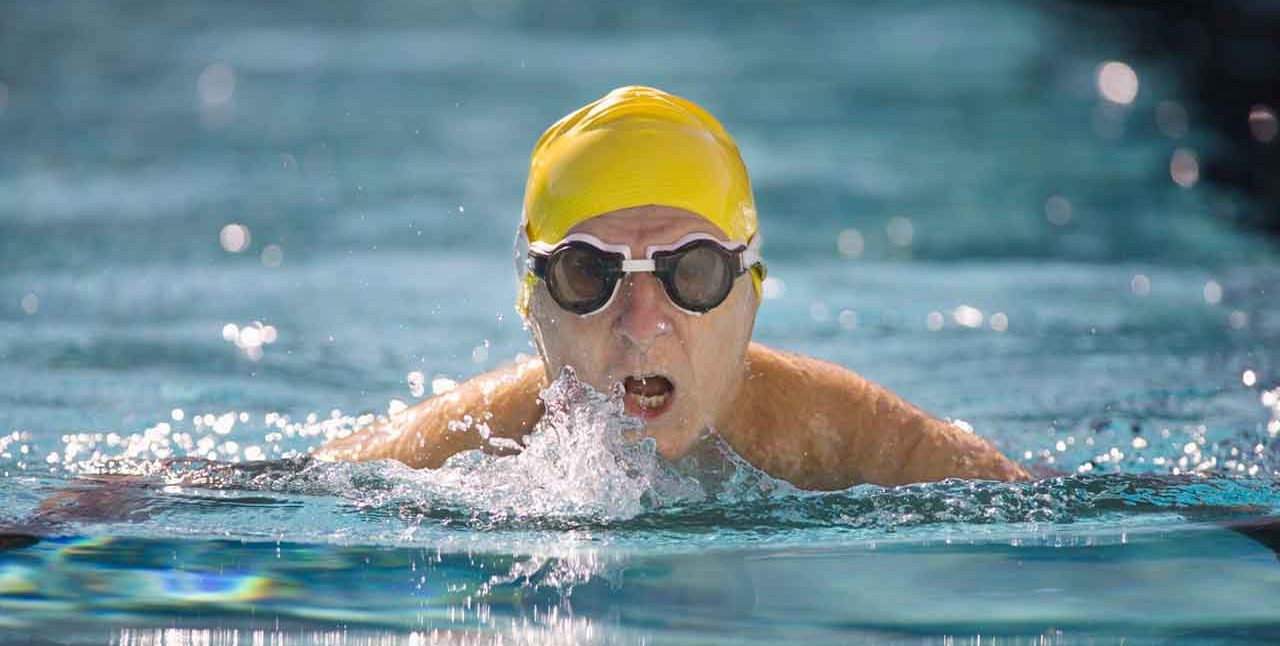Swimming to Lose Weight May Be the Best Exercise

Swimming to lose weight burns calories, gives your heart a workout, and has a low impact on your joints.
As swimming goes, it may be the best overall work out hands down for two main reasons. You use all the muscles in your body with extremely low impact.
You do have to find both a chunk of your day and a pool to swim, but it has so many benefits it’s worth it.
YOU MIGHT ALSO LIKE: Safety On, and In, the Water
Swimming to lose weight
Although swimming is a low-impact workout, it provides muscle resistance as well. Usually seen as an aerobic exercise, swimming does build strength as well because moving through water still takes effort.
Swimming (also) is one of the most effective forms of calorie burning and weight loss, says Swim Teach. “On average, a swimmer can burn as many calories in an hour as a runner who runs six miles in one hour. Simply put, some call swimming the perfect form of exercise.”
Swimming to lose weight a safe daily workout routine because you can rigorously exercise with a reduced chance of injury. Athletes of all kinds boost their training with swimming because it provides an effective cardiovascular workout that can increase cardiovascular endurance significantly. Again, without the strain on the joints of a higher-impact sport such as running.
Swimming also tones your upper and lower body simultaneously because you’re using almost all of your major muscle groups.
A 2008 study found a lower death rate among swimmers than walkers or runners, but scientists say that doesn't necessarily translate to swimming being the most healthful of activities, says the Los Angeles Times.
"I can't say everybody should be swimming as opposed to other things," Peter Katzmarzyk, PhD, a professor of epidemiology at the Pennington Biomedical Research Center told the Times. But at the very least, he added, the study shows that swimming "accrues the same benefits as other activities, and that was never shown before. It's certainly as good if not better."
Swimming does offer several advantages that other activities don’t, argues Andrew Weil, MD. “Water neutralizes the force of gravity, allowing free movement of joints and muscles,” he says. “This makes swimming the activity of choice for anyone with musculoskeletal problems, such as arthritis or traumatic injury.”
YOU MIGHT ALSO LIKE: Drink Plenty of Water to Avoid Dehydration
Weil says many people also get into a “desirable altered state” of consciousness while swimming, from feelings of “freedom and buoyancy” water provides and rhythmic breathing.
Simply put, water is calming. Even spending time near water can have a similar effect as meditation, says the Huffington Post, by countering the constant “overstimulation” people experience in every day life. Some people just float in water as a form of meditation and, sometimes, the water is accompanied by a sensory deprivation tank.
Swimming does have its limitations, depending on what you’re after.
“If your goal is to bulk up and build larger muscles, swimming may not be your ideal form of exercise,” says Fitday. “You will need to lift weights to increase bulk. Additionally, if your goal is to strengthen your bones, you will need to do weight training or similar weight bearing exercise.”
Yes, swimming is highly effective at burning off many calories. But, says Fitday, you burn them off in the water.
“The work of calorie burning slows and quickly stops after you stop swimming. This is in contrast to other types of exercise where your body continues to burn calories while it returns your body temperature to normal.”
Swimming exercises for seniors
On the flipside, a study found that swimming is the only type of exercise that lowers the risks of falls in seniors.
"Unlike [with] land-based sports, swimmers are required to create their own base of support and at the same time, to produce a coordinated movement of both upper and lower extremities," study author Dafna Merom, an associate professor of physical activity and health at the University of Western Sydney in Australia, told Live Science.
The researchers also found that the swimmers did better on a test of "postural sway," or standing balance, compared with the average of all (participants) in the study.
YOU MIGHT ALSO LIKE: How to Exercise Correctly During Summer
Updated:
April 08, 2020
Reviewed By:
Janet O’Dell, RN